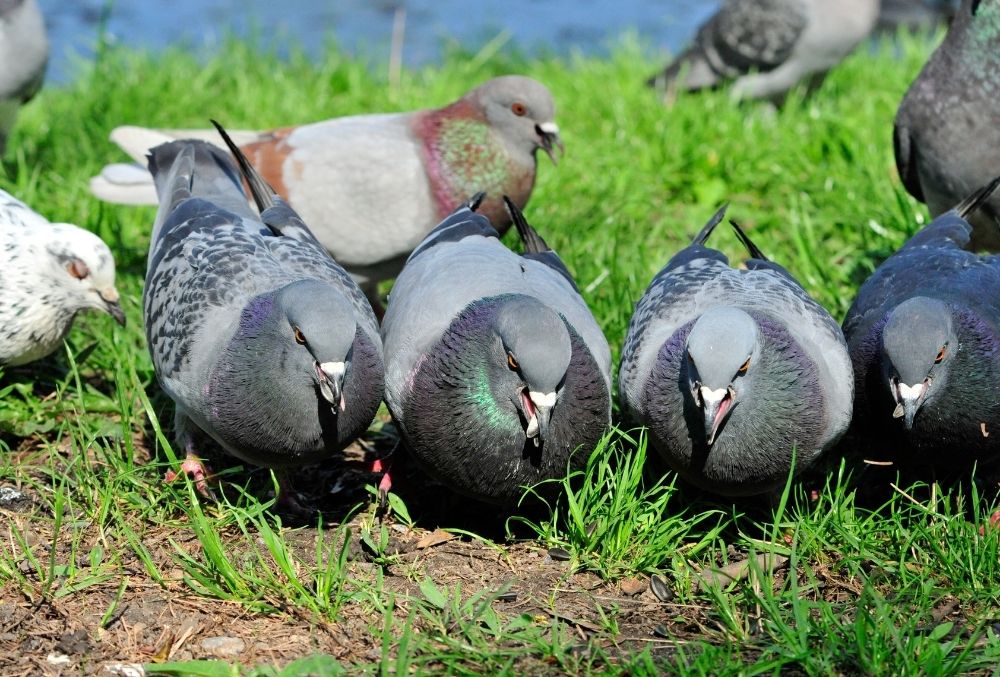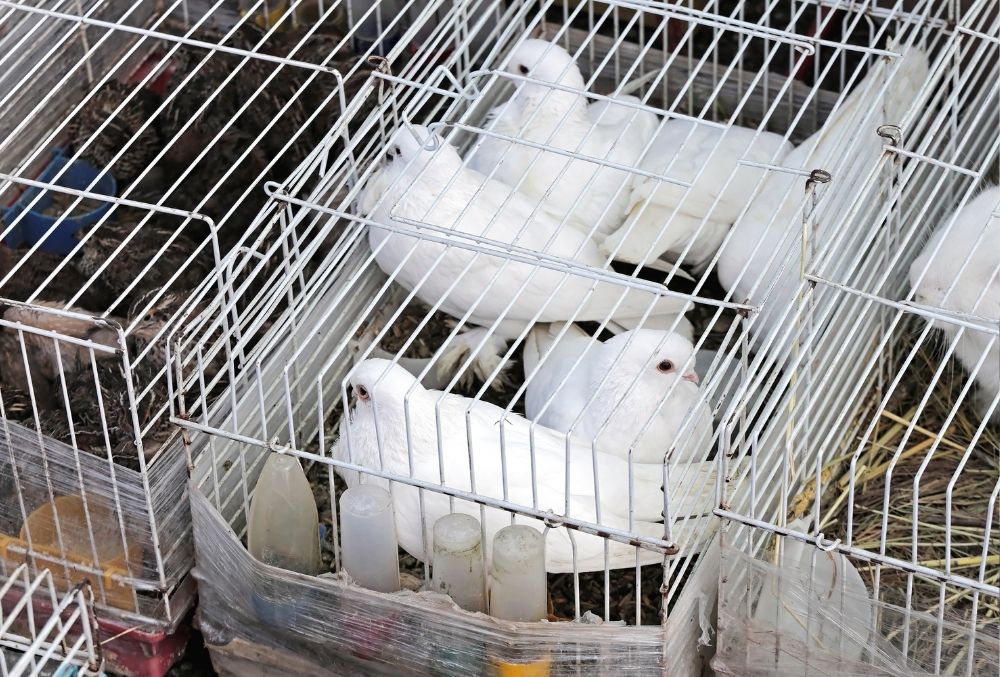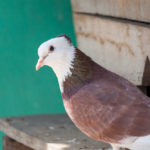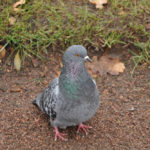If you are thinking about fostering doves and pigeons or you are simply hoping to keep them as pets, then you will need to find ways to prevent them from reproducing.
Both of these birds can pair with one another if you have more than one, and if you don’t want them to reproduce, then you will need to do something about it.
Some birds won’t pair up at first, whereas others will get straight to it, and these birds can be very unpredictable when it comes to this.

As soon as they start courting each other, they will be with one another all the time, and you will need to get to work at preventing them from reproducing if you don’t want to have lots more birds than you originally intended to.
In this article, we are going to tell you everything that you need to know about pigeons and doves and their reproducing habits.
We are also going to take a look at what happens when these birds pair up, how they court one another, what you need to know about their eggs, and what you need to know about pigeon and dove birth control. Just keep reading to find out more.
Paired Pigeons And Doves
When pigeons and doves pair up with one another, they will tend to spend most of their time together, even when it comes to eating, cleaning themselves, going to sleep, and looking for a good place to put a nest. They may even feed and clean each other at times.
Finding And Building A Nest
When it comes to finding a suitable place for the nest, the male bird will go to different parts of their living space and highlight them to the female bird. He will make various different noises to try and persuade her that it is a good place to put the nest.
Pigeons really like straw, which is why they will put a piece of straw near every potential place for the nest to go. The cocks can even become very creative when it comes to finding the nest, which is why you will probably notice straw in the most random of places.
Once the birds have finally decided on where they want to put their nest, the next thing to happen is for the hen to lay her first egg. This will usually happen within a few days, and she will lay another egg either the next day or a couple of days later.

The eggs look amazing as they are a glowing pink color. However, there will be a bird sitting on these eggs all of the time. Various birds will take it in turns to sit on the eggs for a few hours.
The birds that are not on the eggs will do everything that they need to do like eat, wash, and relax.
Sometimes, the birds that are not sitting on the eggs will feed the bird that is, but more often than not, they will not eat while they are minding the eggs. They are really quite impressive, as they will sit on top of their nest no matter what is happening around them.
Interestingly, these birds won’t even poop when they are sitting on the nest, and holding it in is not something that all birds can do. It would theoretically mean that you could toilet train these birds, just like you can with parrots. Although, this probably wouldn’t be the most useful of tricks to teach to your bird.
Birth Control For Pigeons
If you didn’t already know, a pigeon’s eggs will typically hatch after around 18 days have passed. Something that many people do if they don’t want to have lots of baby pigeons roaming around is to swap the real eggs and replace them with fake wooden eggs.
Although these fake eggs are supposed to replicate real eggs, they aren’t as close as they could be.
If this is something that you want to try, you will need to warm up the pretend eggs with your hands before you go ahead and swap them out. They aren’t the best match for the real eggs, which are quite warm when you take them out from under the bird, but they will do their job.
The eggs that pigeons lay are quite alike the ones that you would cook up for breakfast when it comes to their inside appearance. Without the developed embryo, the shell will be full of egg white and yolk. This will only be the case if you take the real eggs soon enough after they have been laid.
If you want to remove the real eggs from the nest, then you will either need to wait until both of the birds have left the nest, or if there is always a bird sitting on top of the nest at all times, you will need to try and put your hand underneath the seated bird to gently take the eggs out from under them.
You will need to be quick in replacing the eggs that you have taken with the fake warmed eggs. To put them into the nest, you should gently slide them underneath the pigeon. This is something that will become much easier over time the more that you practice it.
You should also make sure that you throw away the real eggs as they will need to be destroyed. Methods like shaking around the eggs or placing them in the refrigerator are not going to work, as they can still hatch.
Some people have even said that after freezing their chicken eggs they have still managed to hatch.
For this to work, you will need to get rid of all of the eggs. You also shouldn’t use them as pretend eggs, no matter what method you have followed as it is all just a bit too confusing.
So, your best bet is to discard of all of the eggs that you have collected from the nest, and only use the fake ones for putting back into the nest.
Something else that you will need to be mindful of is the fact that you will need to keep continuously checking the nest for any new eggs. The female bird might lay her eggs with the existing fake eggs, so you will need to get rid of the real ones.
Even if you are not planning on breeding your birds, you should still supplement calcium, as this will support the overall health of the hen and reduce any potential health risks in the future.
It is probable that the pigeons know that the eggs are not the same as the were although this is not confirmed. However, either way, they will still keep the fake eggs warm and protect them as though they were real. Even though the eggs are fake, they will still treat them as though they are not.
More often than not, after around 2 or 3 weeks of trying to hatch the eggs, they will give up on them. They will proceed to abandon the nest and go back to spending time with each other instead.
Once they are back to normal behavior for a while, they will then start the process again with a new nest, where new eggs will be laid. These birds don’t do much other than reproduce most of the time, and they will typically mate for life. This back and forth process will keep repeating itself.
Dove Birth Control
The process is very similar for doves, but the main difference is that dove eggs will usually hatch within around 2 weeks. You will need to follow the same steps that we have mentioned above, and replace the real eggs with the fake eggs that you have on standby. However, you may find the process with doves a little bit more challenging.






